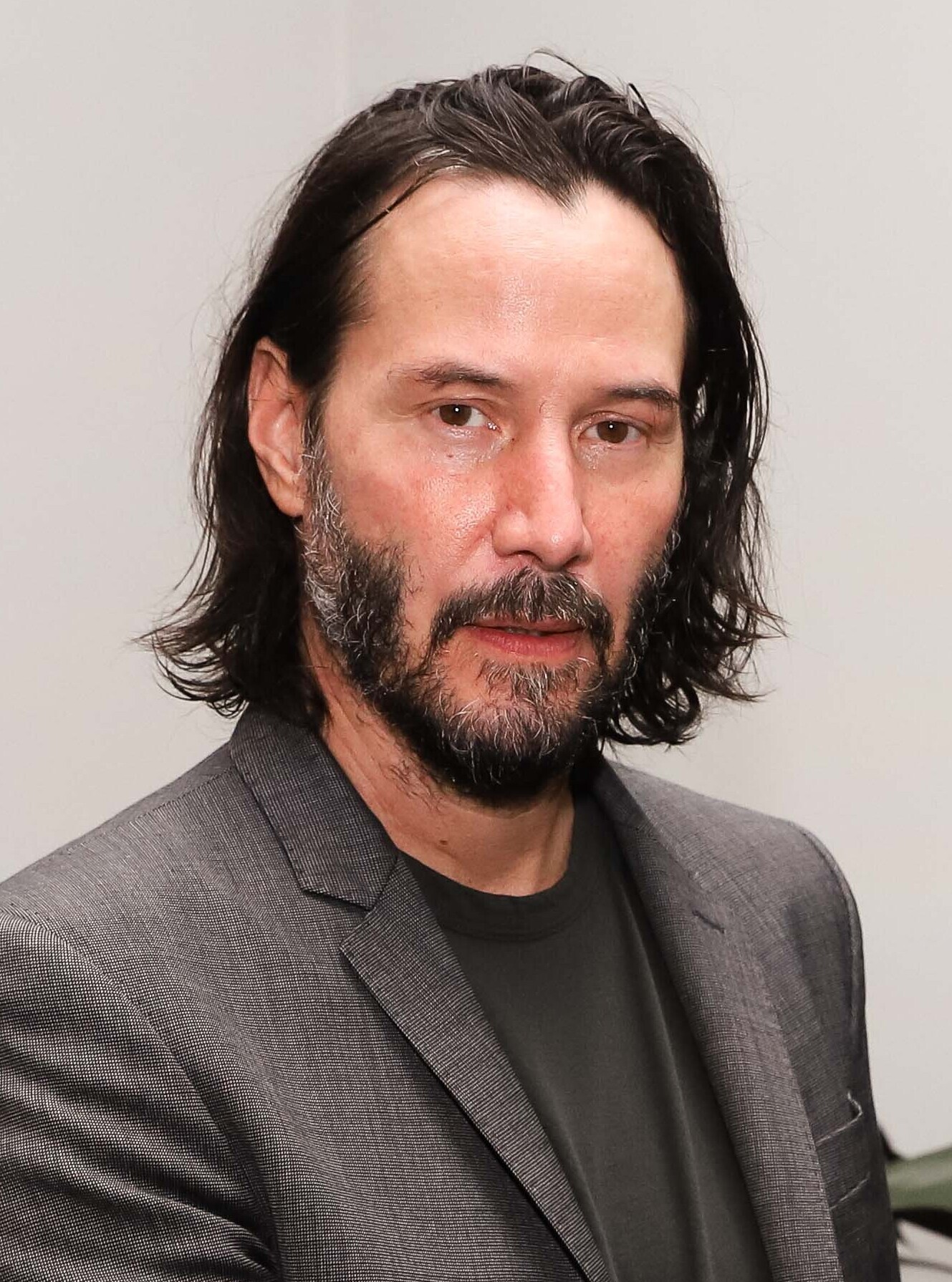
Keanu Charles Reeves. The name itself conjures a multitude of images: the stoic savior Neo, the charismatic detective Johnny Utah, the relentless assassin John Wick, or perhaps the perpetually pleasant and enigmatic public figure. For four decades, this Canadian actor and musician has captivated audiences, transcending conventional celebrity archetypes to carve out a singular space in the annals of Hollywood. His journey, marked by both monumental successes and periods of quiet contemplation, reveals a man deeply dedicated to his craft, his passions, and an understated authenticity that resonates profoundly in an often-cacophonous world.
Beyond the blockbuster franchises and critical acclaim—which notably includes The New York Times ranking him as the fourth-greatest actor of the 21st century in 2020, and Time magazine naming him one of the 100 most influential people in the world in 2022—lies a narrative rich with personal evolution and an unwavering commitment to a distinctive lifestyle. This in-depth exploration will take us through the formative experiences and pivotal career moments that have shaped Keanu Reeves into the cultural icon he is today, peeling back the layers of his illustrious career and unique path through Hollywood.

1. **The Enduring Persona: Amiable and Influential**
In an era saturated with performative celebrity, Keanu Reeves stands apart, embodying a unique blend of amiable public image and quiet, profound influence. His reputation for kindness, generosity, and grounded demeanor is not merely anecdotal; it is a consistent thread throughout his four-decade-long career, contributing significantly to his status as one of Hollywood’s most beloved figures. This innate geniality, coupled with a fiercely private nature, creates a compelling paradox that deepens his mystique and appeal to a global audience.
The magnitude of his impact is formally recognized by respected institutions. In 2020, The New York Times ranked him as the fourth-greatest actor of the 21st century, a testament to his consistent ability to deliver memorable performances. This acknowledgment places him in an elite echelon of talent, underscoring his enduring relevance. Furthermore, in 2022, Time magazine underscored his broader societal importance by naming him one of the 100 most influential people in the world, highlighting his impact as a cultural touchstone whose philosophy and authentic way of navigating fame have left a significant mark beyond acting credits.
This blend of genuine amiability and significant influence positions Reeves not just as an actor, but as a compelling figure whose quiet strength and principled approach to life offer a refreshing counter-narrative to the often-frenetic pace of celebrity. His consistent portrayal of empathetic characters, coupled with his own real-world actions, creates a cohesive and aspirational persona. It is this authentic resonance that cements his status as a truly influential individual in our modern landscape.
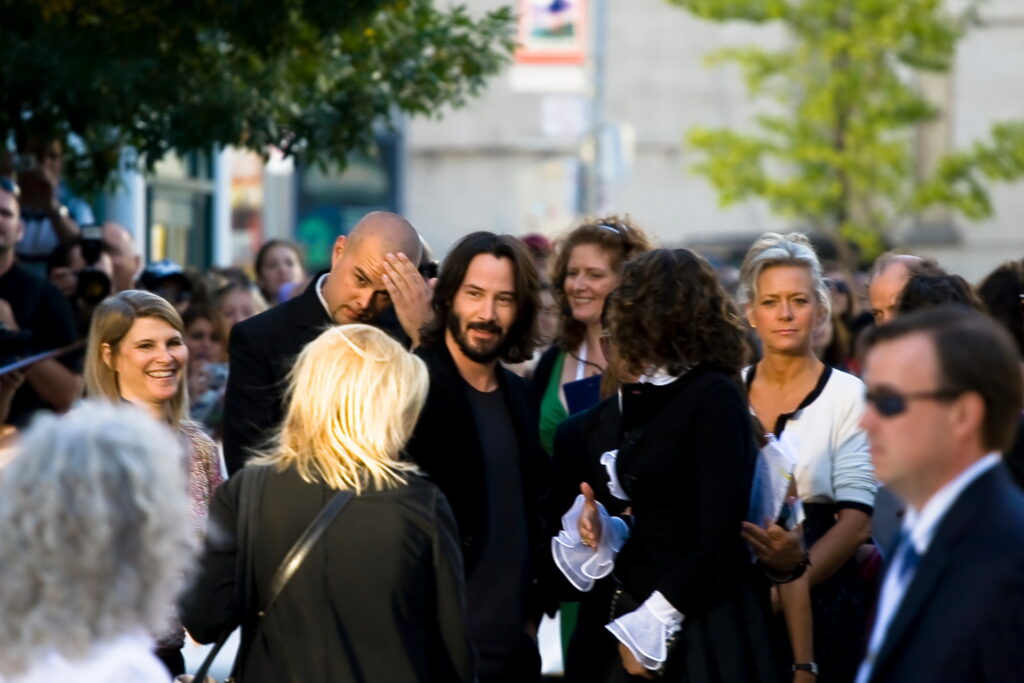
2. **Roots and Resilience: A Diverse Upbringing**
To truly understand Keanu Reeves, one must delve into the formative experiences of his early life, a period marked by diverse cultural influences and personal challenges that shaped his worldview and quiet resilience. Born Keanu Charles Reeves in Beirut, Lebanon, on September 2, 1964, his heritage is a vibrant tapestry. His mother, Patricia Taylor, was English, while his American father, Samuel Nowlin Reeves Jr., hailed from Hawaii and carried Native Hawaiian, Chinese, English, and Portuguese descent. This rich blend, particularly through his paternal grandmother’s Hawaiian and Chinese roots, meant Reeves grew up immersed in a unique cultural environment, influenced by Chinese art, furniture, and cuisine, alongside English manners imparted by his mother.
His early years were characterized by movement and adaptation. His father abandoned the family when Reeves was three, and he only met him again at thirteen. After his parents divorced in 1966, the family moved to Sydney, Australia, then to New York City, before settling in Toronto after his mother’s marriage to director Paul Aaron. Though brief, Aaron remained a significant, supportive figure, offering advice and recommending him a job at the Hedgerow Theatre in Pennsylvania. Growing up in Toronto’s Yorkville neighborhood, Reeves described himself as a “private kid,” navigating an unconventional academic journey through four different high schools, including an expulsion from Etobicoke School of the Arts for being “just a little too rambunctious.” He also dealt with dyslexia, stating, “Because I had trouble reading, I wasn’t a good student.”
Despite academic struggles, Reeves excelled as an ice hockey goalkeeper at De La Salle College, aspiring to play for the Canadian Olympic team until a career-ending injury. At fifteen, he decided to pursue acting, leading him to drop out of high school at seventeen. Obtaining a green card through his American stepfather, he moved to Los Angeles three years later. He holds only Canadian citizenship, carrying with him the quiet determination forged in a childhood of diverse experiences and personal fortitude, ready to embark on a path that would redefine his life.
Read more about: The Fenty-Mayers Family Grows! Rihanna and A$AP Rocky Embrace a New Chapter as They Welcome Their Daughter
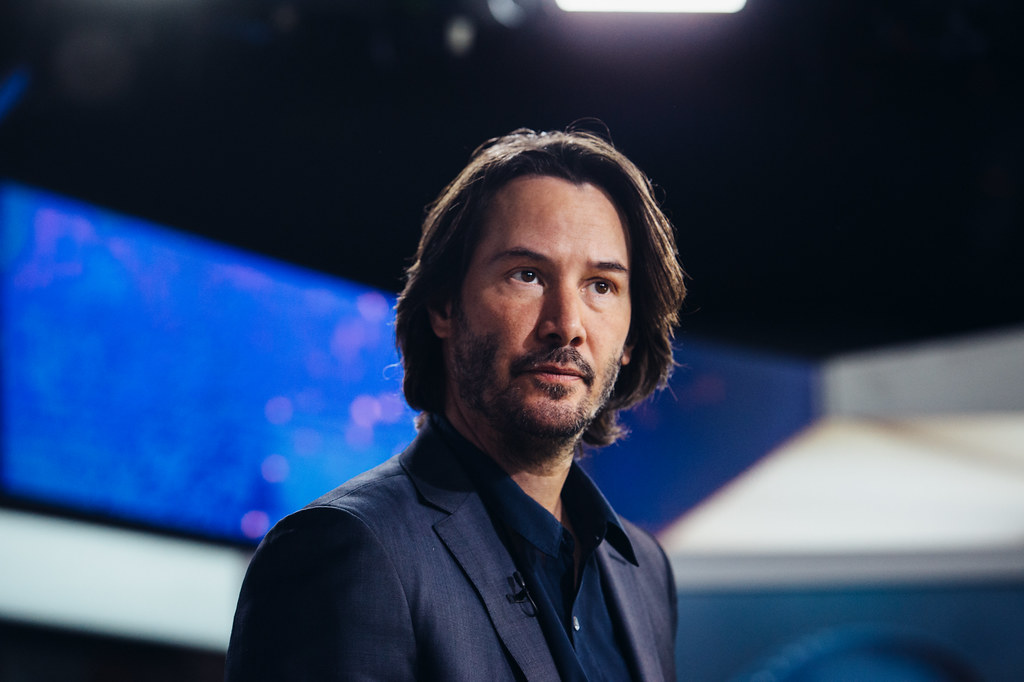
3. **From Stage to Screen: Early Career Genesis**
Before he became a global phenomenon, Keanu Reeves honed his craft through a series of foundational experiences, moving from Canadian television and regional theatre to independent cinema. His earliest foray into media began in 1984 as a correspondent for the Canadian Broadcasting Corporation (CBC) youth television program, *Going Great*, quickly leading to his acting debut that same year in an episode of *Hangin’ In*. The stage also played a crucial role, with roles like Mercutio in *Romeo and Juliet* in 1985 and appearances in cult hits like *Wolfboy*, demonstrating his commitment to live performance. Early commercial work, including a Coca-Cola commercial in 1983, further rounded out his diverse training.
As he sought work in the mid-1980s, Reeves faced an intriguing challenge: agents advised his first name was “too ethnic.” He briefly adopted “K. C.” or “Casey” Reeves for auditions before reverting to “Keanu,” a decision that subtly foreshadowed the independent spirit defining many of his career choices. His entry into motion pictures included roles in television films like NBC’s *Babes in Toyland* and feature films such as *Youngblood* (1986).
However, it was his role as Matt in *River’s Edge*, a crime drama premiering at the Toronto International Film Festival in 1986, that truly garnered critical attention. Janet Maslin of The New York Times praised the young cast’s performances as “natural and credible,” singling out Reeves as “affecting and sympathetic,” an early indicator of his compelling screen presence that would soon propel him towards broader recognition.
Read more about: Mastering the Craft: A Comprehensive Guide to Common’s Diverse Career and Enduring Impact
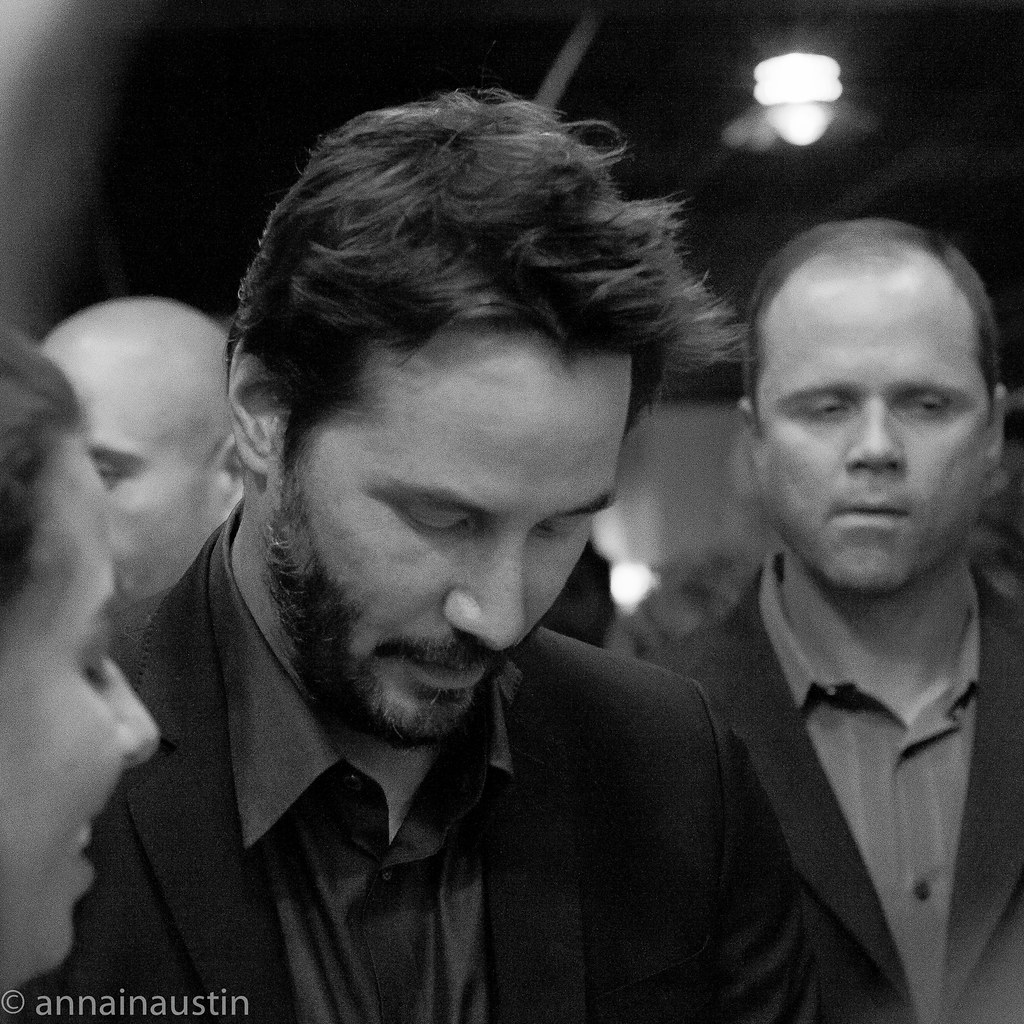
4. **The Excellent Adventure Begins: Early Breakthrough**
While critical praise for independent dramas marked his early potential, it was a foray into comedy that truly launched Keanu Reeves into broader public consciousness. In 1989, he starred in *Bill & Ted’s Excellent Adventure*, a science-fiction comedy where he portrayed Ted, a lovable slacker who travels through time with his friend, Bill (Alex Winter). The film, a charmingly goofy escapade, resonated widely with audiences and critics, grossing $40.5 million worldwide.
The critical reception highlighted the chemistry between Reeves and Winter, and their ability to bring a genuine, good-natured spirit to their characters. Rotten Tomatoes’ critical consensus noted: “Keanu Reeves and Alex Winter are just charming, goofy, and silly enough to make this fluffy time-travel Adventure work.” This role, a stark departure from earlier intense dramas, showcased Reeves’s versatility and capacity for a lighter, comedic touch, endearing him to a generation. He continued exploring diverse genres with roles in Ron Howard’s *Parenthood* and the black comedy *I Love You to Death*.
The enduring impact of his breakthrough role was evident when he reprised his character in *Bill & Ted’s Bogus Journey* in 1991. Michael Wilmington of the Los Angeles Times praised the sequel as “more imaginative, more opulent, wilder and freer,” while Roger Ebert found it “a riot of visual invention and weird humour.” These films cemented Keanu Reeves not just as an actor, but as a unique comedic talent capable of carrying a successful franchise.
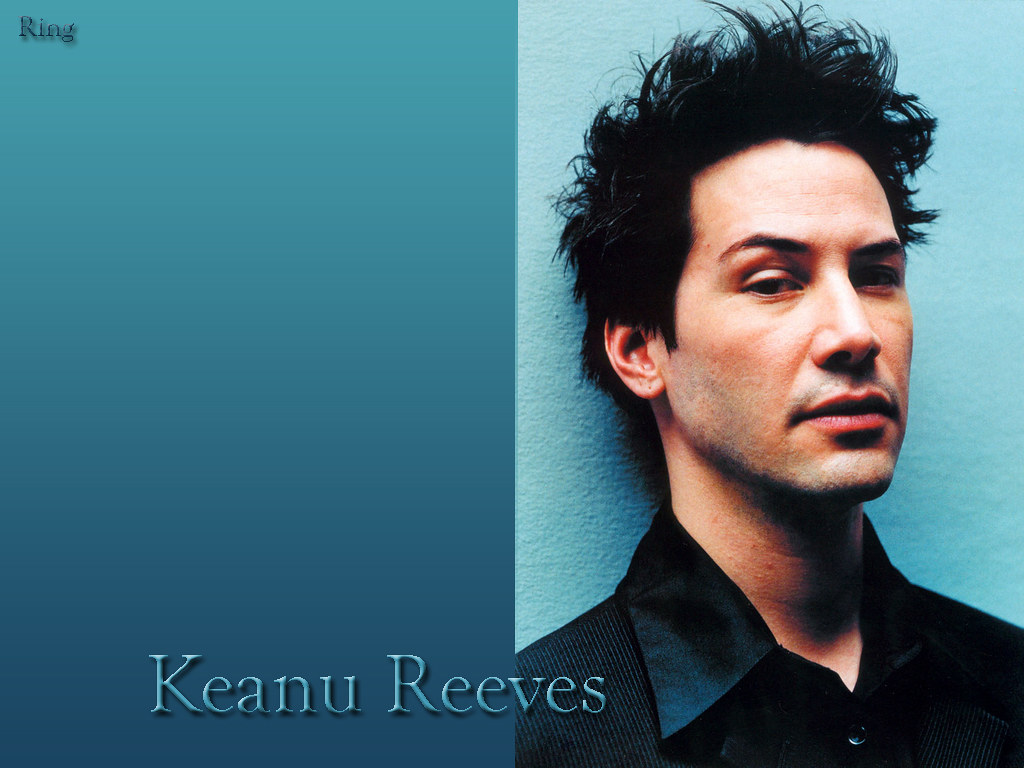
5. **Defining the Action Hero: Point Break and Speed**
The early 1990s marked a pivotal transformation for Keanu Reeves, as he deftly transitioned from comedic roles to establish himself as a bonafide action hero. This shift began with the 1991 action thriller *Point Break*, directed by Kathryn Bigelow, where Reeves starred as Johnny Utah, an undercover FBI agent infiltrating a group of charismatic bank robbers. His commitment to authenticity was clear; he undertook rigorous surfing lessons despite never having surfed before, a dedication that would become a hallmark of his career.
*Point Break* was both well-received and a commercial success, grossing $83.5 million. The New York Times praised Reeves’s “considerable discipline and range,” noting his ability to move “easily between the buttoned-down demeanour… and the loose-jointed manner of his comic roles.” Hal Hinson of The Washington Post called Reeves the “perfect choice.” His efforts were recognized with the Most Desirable Male award at the 1992 MTV Movie Awards, signaling his rising prominence in the action genre.
Three years later, in 1994, Reeves cemented his action star status with *Speed*, an adrenaline-fueled thriller. He portrayed police officer Jack Traven, who must prevent a bus from exploding by keeping its speed above 50 mph. Director Jan de Bont specifically chose Reeves, impressed by his *Point Break* performance. To embody the role, Reeves shaved his head and dedicated two months to intense gym work. *Speed* premiered to critical acclaim, with Gene Siskel of the Chicago Tribune calling him “absolutely charismatic.” The film’s monumental success, grossing $350 million and winning two Academy Awards, firmly established Keanu Reeves as one of Hollywood’s most reliable and engaging action leads.
Read more about: 13 Celebs Who Broke the Internet With a Single Photo: From Viral Hits to Unforgettable Dramas
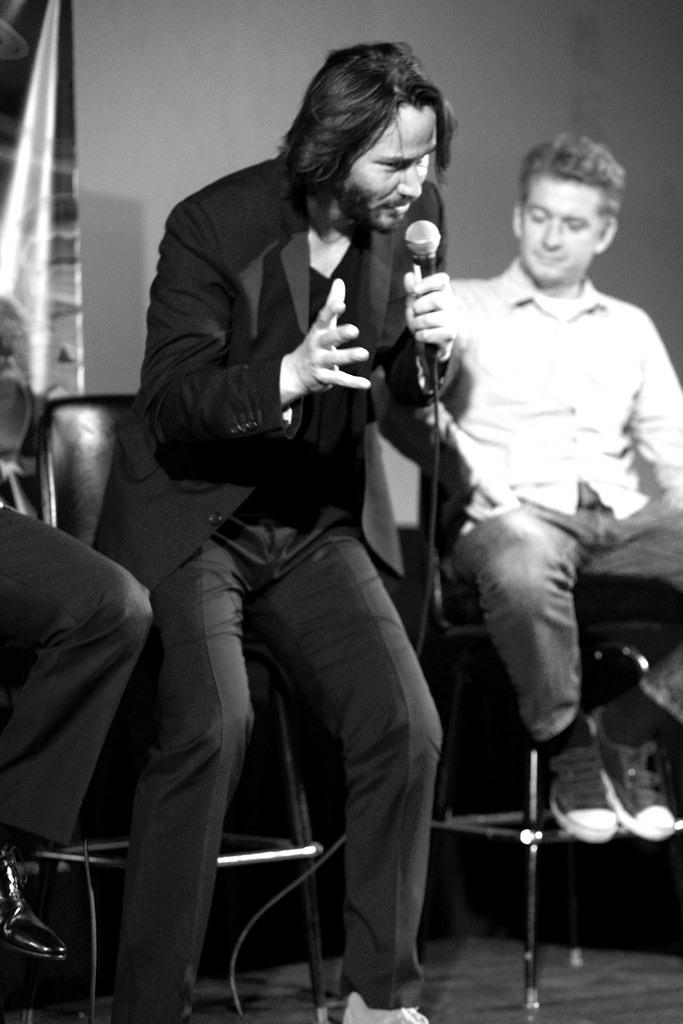
6. **Navigating the Labyrinth: Pre-Matrix Career Shifts**
Following his ascendancy as an action star, the mid-to-late 1990s presented a period of fascinating experimentation and career fluctuation for Keanu Reeves, showcasing his willingness to take risks. In 1991, he co-starred with River Phoenix in the independent drama *My Own Private Idaho*, portraying a street hustler in a critically acclaimed role that demonstrated his intent to balance mainstream success with artistic challenges. This was followed by his portrayal of Jonathan Harker in Francis Ford Coppola’s *Bram Stoker’s Dracula* (1992), a commercial success despite some ridicule for Reeves’s English accent.
This period also saw Reeves delve into classical theatre, most notably taking on Prince Hamlet in a 1995 Manitoba Theatre Centre production. *The Sunday Times* critic Roger Lewis was profoundly impressed, writing that Reeves “quite embodied the innocence, the splendid fury… He is one of the top three Hamlets I have seen.” However, the mid-90s also brought commercial and critical disappointments like *Johnny Mnemonic* (1995) and *Chain Reaction* (1996), which often saw critics describe his casting as “woeful.”
A defining moment came with his principled decision to turn down a $12 million offer for *Speed 2: Cruise Control* in 1997, opting instead to tour with his band Dogstar. This choice, which he noted caused 20th Century Fox to “sever ties with him for a decade,” underscored his commitment to artistic integrity over pure financial gain. He later redeemed his standing in the 1997 supernatural horror *The Devil’s Advocate*, where he took a pay cut for Al Pacino to be cast, earning positive reviews and setting the stage for his imminent resurgence.
Continuing our exploration of Keanu Reeves’ remarkable journey, we now turn to the monumental roles and creative endeavors that further cemented his status as a unique figure in entertainment, navigating through unprecedented blockbusters, a return to musical pursuits, a directorial debut, and a triumphant resurgence with a new iconic character. His path through Hollywood has been anything but conventional, characterized by thoughtful choices and an unwavering commitment to his diverse interests. This next chapter delves into the defining moments that shaped the latter half of his illustrious career and reveal the man behind the myths.
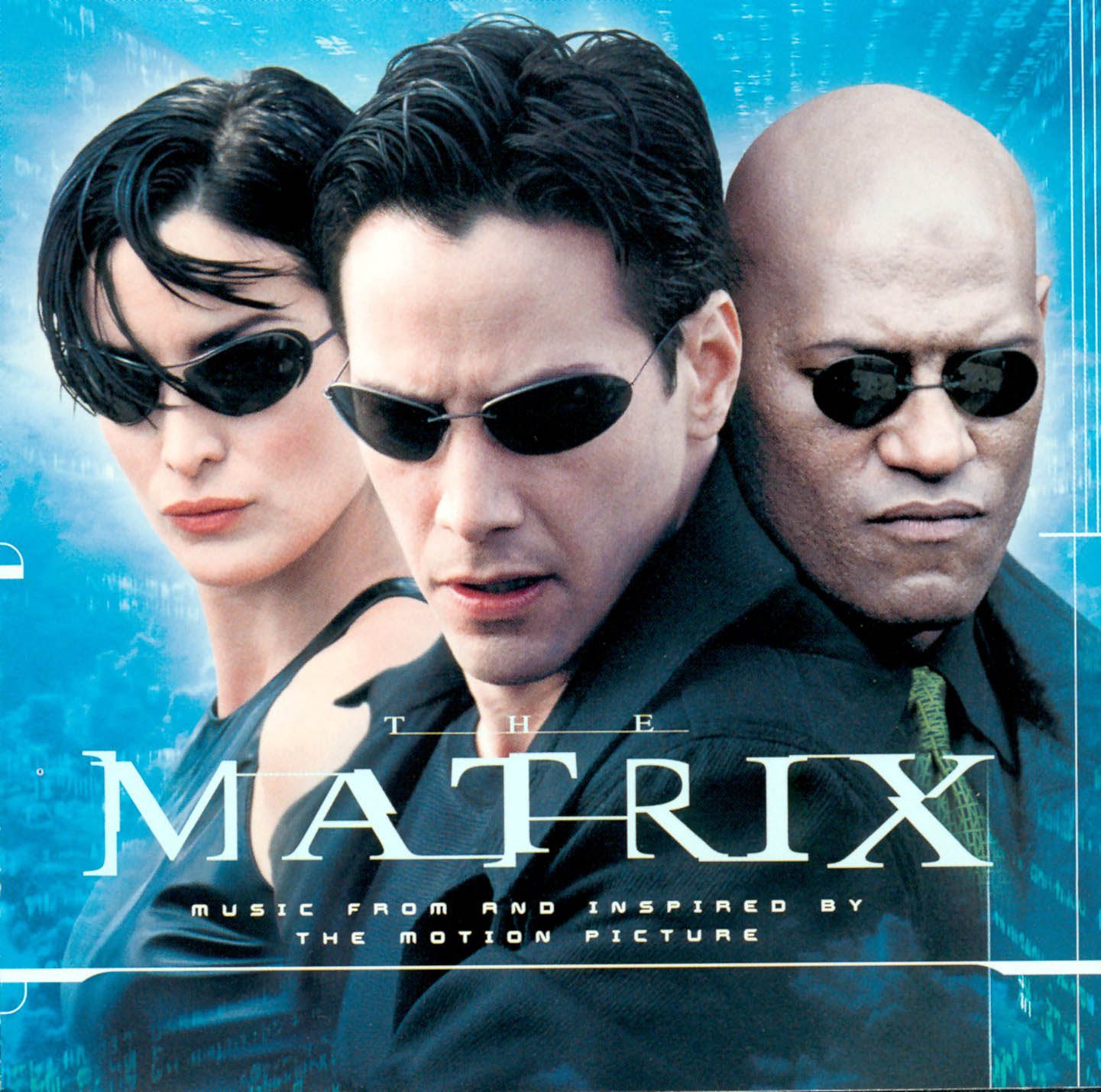
7. **Entering the Digital Pantheon: The Matrix Phenomenon**
The turn of the millennium marked an unparalleled shift in Keanu Reeves’ career, defining not just his trajectory but an entire generation of science fiction filmmaking with his role as Neo in *The Matrix*. Released in 1999, this critically acclaimed film introduced audiences to Thomas Anderson, a computer programmer and hacker who uncovers humanity’s shocking reality as inhabitants of a simulated world. The film, from the visionary Wachowskis, demanded a profound commitment, requiring Reeves to immerse himself in complex philosophical texts like Kevin Kelly’s *Out of Control* and Dylan Evans’s ideas on evolutionary psychology, setting the stage for a performance deeply rooted in intellectual inquiry.
Beyond intellectual preparation, Reeves, along with the principal cast, underwent months of intense training under the martial arts choreographer Yuen Woo-ping. This rigorous physical regimen was instrumental in bringing the film’s groundbreaking fight sequences to life, marrying intricate philosophy with visceral action. The result was a box office phenomenon, widely regarded by critics as one of the greatest science fiction films of all time, pushing the boundaries of cinematic storytelling and special effects.
Critics lauded the film’s audacious vision and Reeves’s striking portrayal. Kenneth Turan of the *Los Angeles Times* described it as a “wildly cinematic futuristic thriller,” while Janet Maslin of *The New York Times* celebrated Reeves as a “strikingly chic Prada model of an action hero,” praising the martial arts stunts as the film’s strongest feature. *The Matrix* garnered significant industry recognition, earning Academy Awards for Best Film Editing, Best Sound Editing, Best Visual Effects, and Best Sound, solidifying its place as a cultural touchstone.
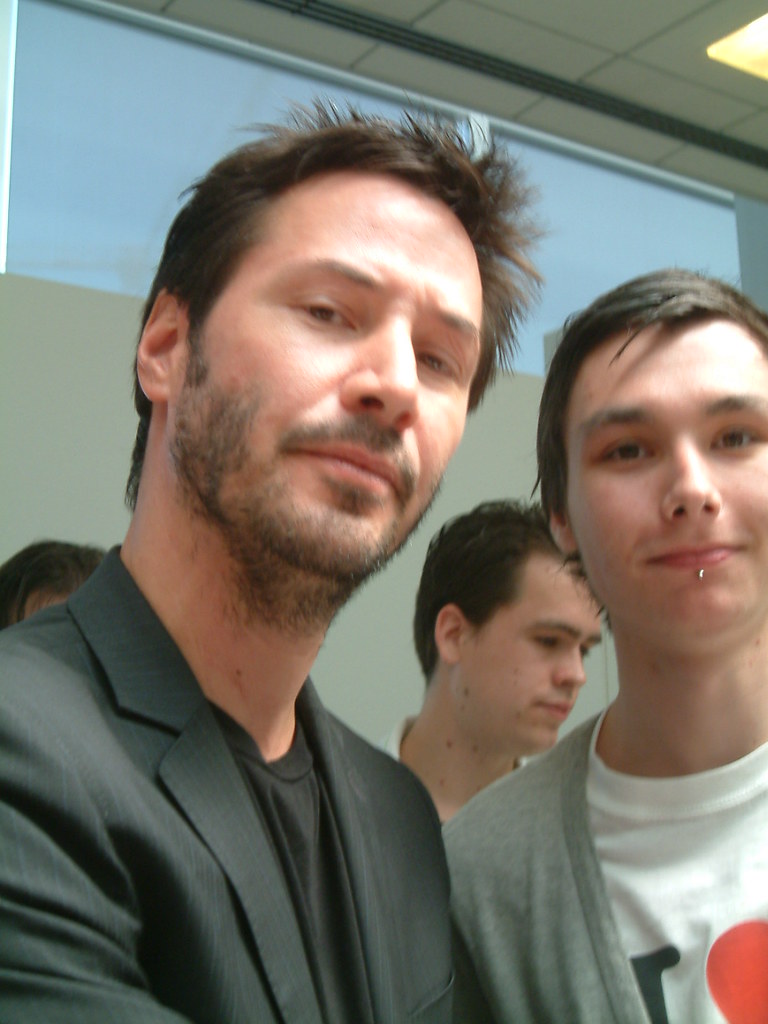
8. **Navigating the Aftermath: Matrix Sequels and Diverse Ventures**
The immense success of *The Matrix* positioned Reeves as one of the industry’s most bankable stars, notably making him the highest-paid actor for a single production for his reprisal of Neo in the 2003 sequels. Yet, true to his unconventional spirit, Reeves’s choices immediately following the original blockbuster demonstrated a preference for artistic breadth over commercial predictability. He took a pay cut to allow Gene Hackman to co-star in the 2000 sports comedy *The Replacements* and even found himself in the critically panned thriller *The Watcher* against his wishes, a situation he later attributed to a forged contract he felt compelled to honor.
The early 2000s saw Reeves continuing to explore a diverse range of genres, from the romantic drama *Sweet November* alongside Charlize Theron, which received negative reviews, to the sports comedy *Hardball*. While critics acknowledged his inherent likability, performances in these films were often met with mixed reception, with Roger Ebert describing his *Hardball* portrayal as “glum and distant,” highlighting a period of varied commercial and critical outcomes for the actor.
His highly anticipated return to the iconic role of Neo arrived in 2003 with *The Matrix Reloaded* and *The Matrix Revolutions*, filmed back-to-back in Australia. *Reloaded* was met with mostly favorable reviews, celebrated for its “dazzling pyrotechnics” and visual spectacle, even if some critics, like John Powers of *LA Weekly*, found Reeves’s acting “somewhat wooden” but acknowledged his “charmed aura.” The film’s global gross of $739 million underscored the franchise’s enduring appeal.
However, *The Matrix Revolutions*, the third installment, garnered a more mixed reception. While lauded for its special effects by critics such as Paul Clinton of CNN, some, including Carla Meyer of the *San Francisco Chronicle*, found the computer-generated imagery less impactful than in previous installments, diminishing the martial-arts thrill. Despite this, the film still achieved a substantial worldwide gross of $427 million, demonstrating the franchise’s significant financial footprint, even as critical opinions began to diverge on its narrative depth.
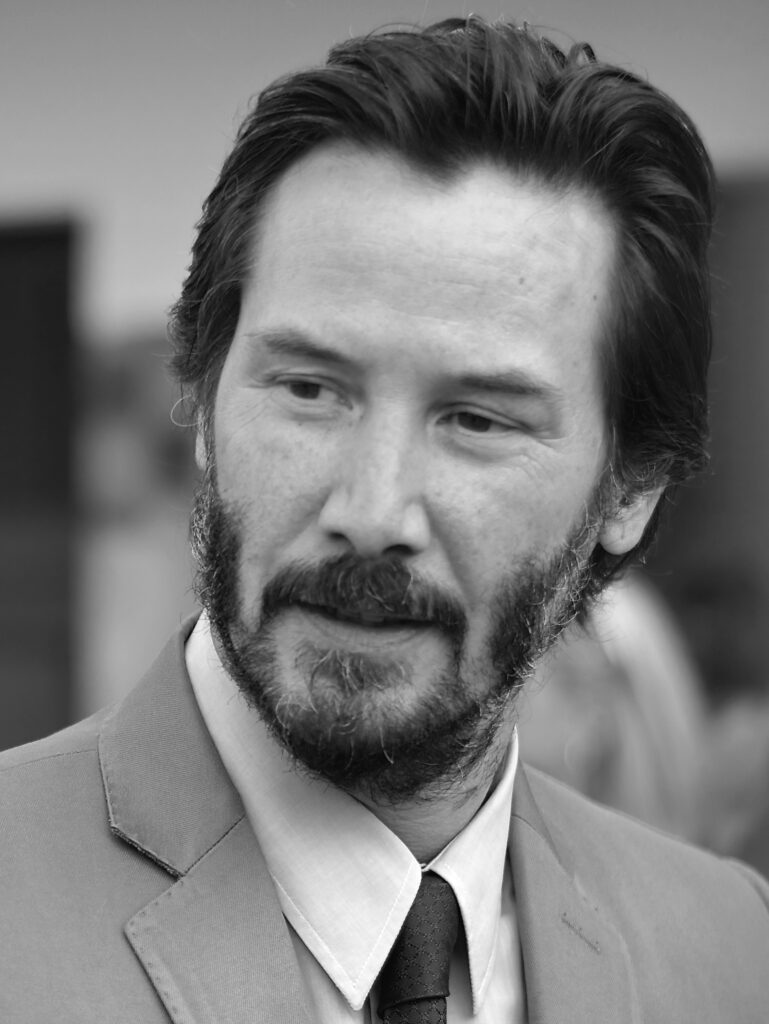
9. **Beyond the Lens: Musical Endeavors and Directorial Visions**
Keanu Reeves’ creative impulse has never been confined solely to acting; his artistic ventures extend notably into the realm of music and filmmaking from behind the camera. In 1991, he delved into a music career, co-founding the alternative rock band Dogstar, where he played the bass guitar alongside members Robert Mailhouse, Gregg Miller, and Bret Domrose. The band released two albums, *Our Little Visionary* in 1996 and *Happy Ending* in 2000, establishing a legitimate, albeit secondary, creative outlet for Reeves during his burgeoning film career.
While Dogstar ultimately disbanded in 2002, marking the end of his formal professional music career, Reeves’s interest in collaborative creation endured. He briefly joined another band, Becky, founded by Dogstar’s Robert Mailhouse, before leaving in 2005, acknowledging a preference not to pursue a serious music career at that time. These musical interludes offer a glimpse into the diverse artistic explorations that characterize his broader creative landscape, showcasing a man who actively pursues passions beyond his most famous roles.
In 2013, Reeves stepped into a new role as a filmmaker, making his directorial debut with the martial arts film *Man of Tai Chi*. This ambitious project, partially inspired by his friend Tiger Chen, featured multilingual dialogue and explored the world of underground fight clubs. Reeves brought a wealth of experience to the table, notably enlisting the legendary Yuen Woo-ping, the fight choreographer from *The Matrix* films, to craft breathtaking sequences. The film, shot in China and Hong Kong, premiered to praise at the Beijing and Cannes Film Festivals, even earning an endorsement from acclaimed director John Woo.
Critics responded warmly to Reeves’s directorial vision. Bilge Ebiri of *Vulture* commended the “beautifully assembled” fight sequences and Reeves’s restrained editing, which allowed the fighters’ movements to shine. The *Los Angeles Times* highlighted the “brutally efficient shooting style” as “refreshingly grounded and old-school kinetic.” While *Man of Tai Chi* was a commercial disappointment, grossing $5.5 million against a $25 million budget, it showcased Reeves’s multifaceted talent and dedication to the craft of filmmaking, further underscoring his creative ambitions beyond performance. This period also saw him co-produce and appear in the 2012 documentary *Side by Side*, where he interviewed notable filmmakers about digital and photochemical film creation, alongside his foray into publishing with the adult picture book *Ode to Happiness* in 2011 and the creation of the *BRZRKR* comic franchise in 2021.
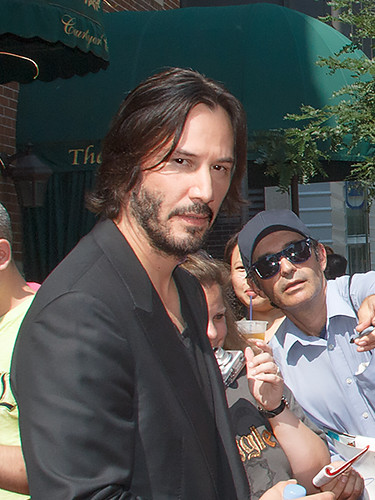
10. **The Resurgence: Genesis of John Wick**
Following a period marked by varied commercial success and critical reception, Keanu Reeves experienced an extraordinary career resurgence in 2014 with the release of *John Wick*. This action thriller, directed by Chad Stahelski, introduced audiences to a retired hitman seeking vengeance, a narrative that resonated deeply and catapulted Reeves back into the pantheon of action stars. The film’s success was not merely a stroke of luck but a testament to Reeves’s collaborative spirit and keen eye for compelling storytelling.
Reeves actively collaborated with the screenwriter to develop the intricate story of John Wick, demonstrating his investment in the project beyond his acting duties. As he himself stated, “We all agreed on the potential of the project. I love the role, but you want the whole story, the whole ensemble to come to life.” This dedication to the complete cinematic vision ensured a character and world that felt meticulously crafted and authentically realized, captivating a global audience.
The film, primarily shot in the gritty locales of New York City, premiered on October 24 in the United States, immediately drawing critical acclaim. *The Hollywood Reporter* lauded Chad Stahelski’s “confident, muscular action debut” and highlighted Reeves’s “effortless” performance, marking a triumphant return to the action genre for the actor. Critics particularly celebrated the film’s expertly choreographed fight scenes, with Jeannette Catsoulis of *The New York Times* noting Reeves’s comfort in roles that demand “cool over hot, attitude over emotion.”
*John Wick* proved to be a significant box office success, grossing $86 million worldwide, a robust performance that solidified the potential for a new, enduring franchise. This film was not just a comeback; it was a redefinition, allowing Reeves to showcase a different facet of his action hero persona, one imbued with a quieter intensity and a profound sense of purpose. It was a role perfectly tailored to his enigmatic charm and disciplined physicality, laying the groundwork for a cinematic universe that continues to expand and thrill audiences globally.
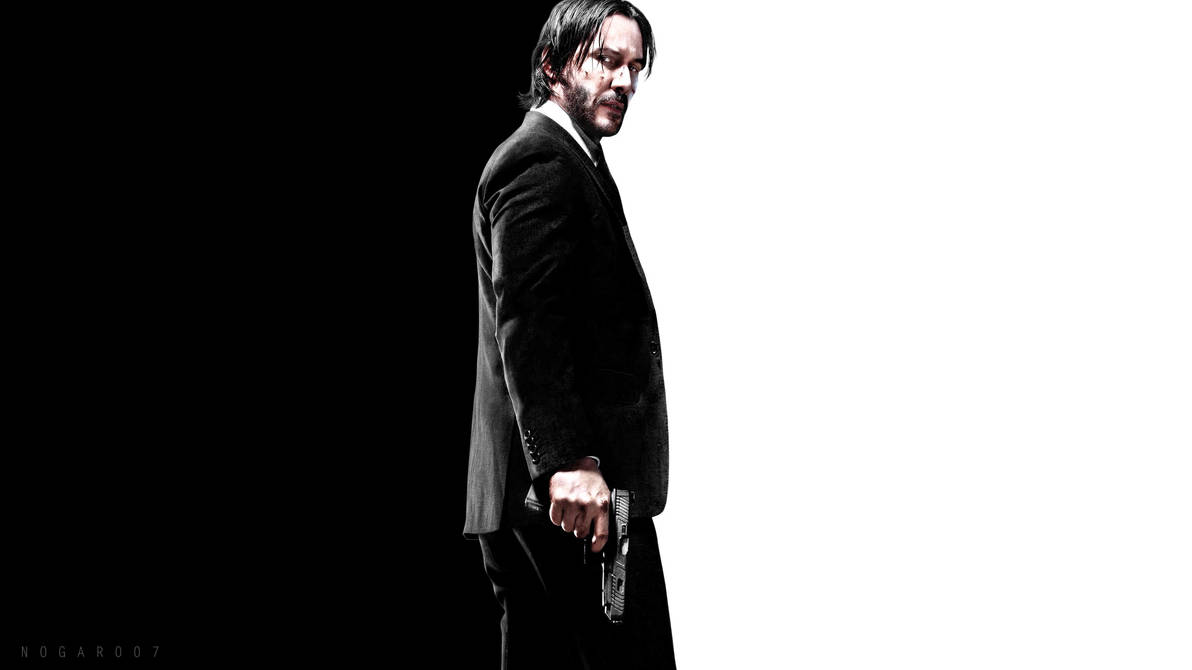
11. **Expanding the Legacy: John Wick Sequels and Beyond**
The immense success of the first *John Wick* film swiftly paved the way for sequels, cementing the franchise as a modern action staple and further solidifying Keanu Reeves’s iconic status. In 2017, he reprised his role in *John Wick: Chapter 2*, which continued the narrative of the embattled hitman on the run after a bounty is placed on him. This sequel not only built upon the stylistic foundations of its predecessor but also expanded its intricate world, proving to be both a critical and commercial triumph.
*Chapter 2* surpassed its predecessor’s box office performance, grossing $171.5 million worldwide, a clear indicator of the burgeoning franchise’s appeal. Critics, including Chris Hewitt of *Empire* magazine, praised Reeves’s performance, noting how it seamlessly complemented his previous action roles in *Point Break* and *Speed*, showcasing a career trajectory defined by consistent excellence in the genre. Justin Chang of the *Los Angeles Times* eloquently described the picture as “a down-and-dirty B-picture with a lustrous A-picture soul,” highlighting its unique blend of gritty action and sophisticated filmmaking.
Reeves returned once again in 2019 for *John Wick: Chapter 3 – Parabellum*, a film that continued the intense narrative immediately after the events of *Chapter 2*. This installment introduced new compelling characters, including Halle Berry, and further deepened the lore of the Wick universe. It was another significant box office hit, grossing $171 million domestically and over $155 million internationally. While *The Globe and Mail* praised the fight scenes and overall energy, some critics, like Cath Clarke of *The Guardian*, began to observe a potential for “franchise bloat,” even as Reeves’s stoic portrayal remained central.
Beyond the *John Wick* saga, Reeves continued to diversify his roles, showcasing his range across various media. He lent his distinctive voice to beloved characters, including Duke Caboom in Disney Pixar’s *Toy Story 4* (2019) and Shadow the Hedgehog in *Sonic the Hedgehog 3* (2024). He also ventured into the world of video games, portraying the charismatic rockstar Johnny Silverhand in *Cyberpunk 2077* (2020) and its expansion, further cementing his relevance in contemporary pop culture. In a nostalgic nod, he reprised his role as Ted in *Bill & Ted Face the Music* (2020) and returned to his defining science fiction role as Neo in *The Matrix: Resurrections* (2021), demonstrating an enduring commitment to the characters that have shaped his extraordinary career.
Read more about: From Broadway to Box Office: An In-Depth Look at John Huston’s Ambitious 1982 Film Adaptation of ‘Annie’
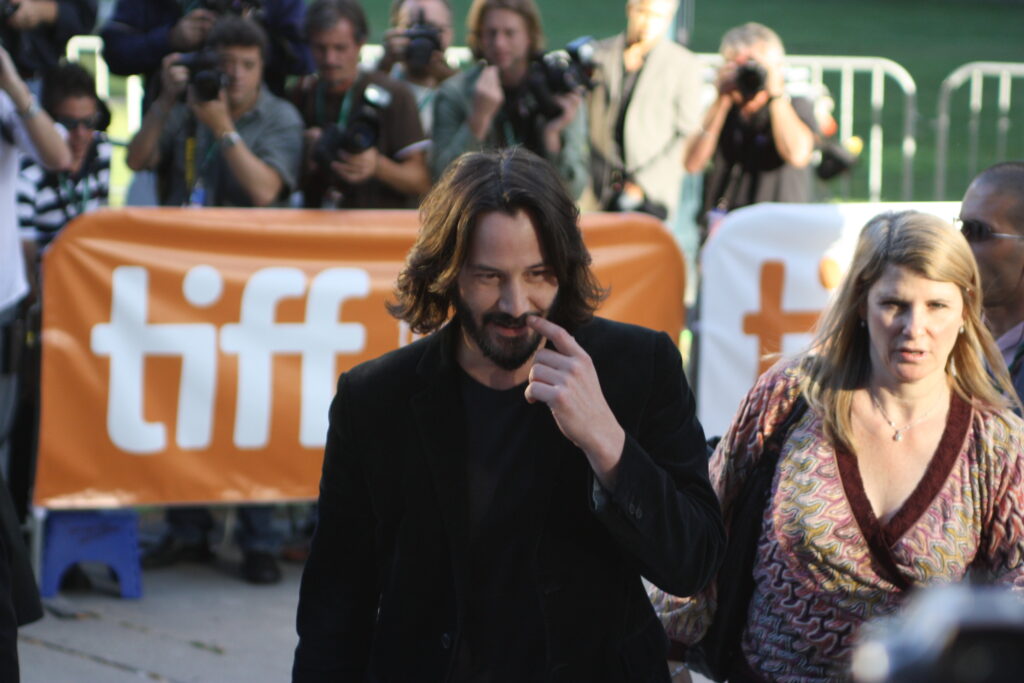
12. **The Quiet Artisan: Motorcycles, Philosophy, and Lasting Legacy**
Away from the glare of Hollywood lights, Keanu Reeves cultivates a life rich in passion, particularly his profound dedication to motorcycles, which has evolved from a personal hobby into a significant entrepreneurial venture. An avid motorcyclist, Reeves co-founded ARCH Motorcycle, a custom manufacturer specializing in bespoke, high-performance bikes. This enterprise reflects his deep appreciation for craftsmanship, engineering, and the freedom of the open road, revealing a hands-on engagement with a niche interest that complements his public persona.
His involvement with ARCH Motorcycle is more than just a celebrity endorsement; it is a genuine commitment to creating exceptional machines, embodying a philosophy of quality and meticulous design. This venture underscores a consistent theme throughout Reeves’s life: a dedication to authentic pursuits and a quiet, unpretentious approach to his passions. It’s a testament to his desire to build and contribute, not just perform.
This understated authenticity extends to Reeves’s broader personal philosophy, one characterized by profound amiability, generosity, and an unyielding commitment to his principles. His journey, marked by both monumental successes and periods of quiet contemplation, reveals a man deeply dedicated to his craft and his passions. This blend of genuine geniality and significant influence positions Reeves not just as an actor, but as a compelling figure whose quiet strength offers a refreshing counter-narrative to the often-frenetic pace of celebrity.
His choices, such as taking pay cuts to enable other actors to join projects or prioritizing touring with his band over lucrative sequels, exemplify a career steered by artistic integrity rather than mere financial gain. The indelible lesson from his role in *Little Buddha*, where he played a prince grappling with “revelations about old age, sickness and death,” left a lasting impression, shaping a worldview that values deeper meaning over superficiality. It is this authentic resonance, combined with his quiet philanthropic efforts and the simple dedication to things he loves, that cements Keanu Reeves’s status as a truly influential individual and an enduring icon, a man living a simple life away from the noise, yet leaving an undeniable mark on the world.



